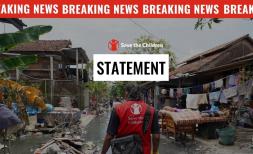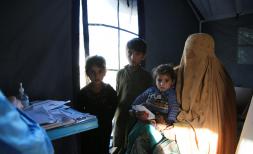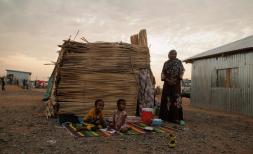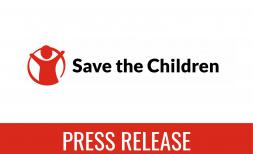Rich countries need to spend just $0.80 a week per citizen to stock world with COVID-19 vaccines
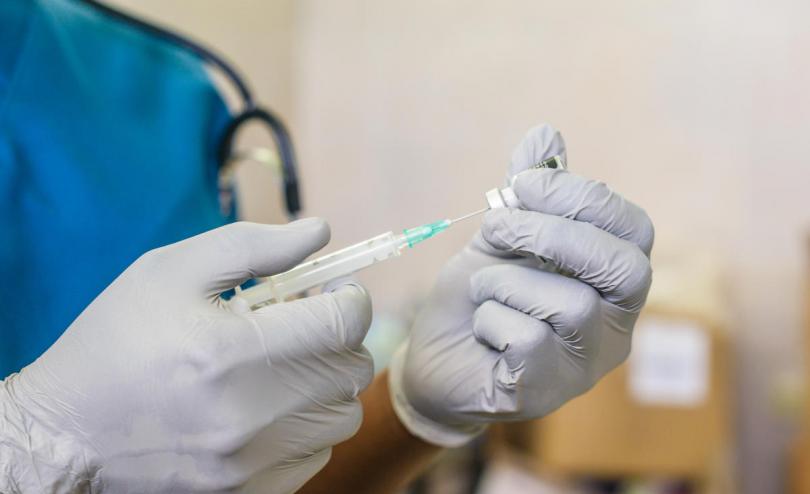
Economic cost of failing to back global vaccination drive will be 35 times the required funding, new analysis reveals
Rich countries at next month’s G7 summit need to spend an average of just $0.80 a week per citizen to help supply the poorest countries with COVID-19 vaccines, analysis from Save the Children has revealed.
Failure to back the global vaccination drive could cost the same economies thirty-five times the required investment, according to the charity’s calculations.
Official figures show the pandemic has so far taken three million lives, with true figures likely to be far higher. It plunged up to 142 million children into poverty in 2020. Last year at the peak of the pandemic, an estimated 1.6 billion learners globally – 91% of the total – were out of school.
For the first time in human history, an entire generation of children globally have had their education disrupted. Without a global vaccine plan of action children will struggle to return to school; hindering their opportunity to develop and learn.
Bidisha Pillai, Global Policy, Advocacy & Campaigns Director for Save the Children:
“Today’s figures show the question isn’t whether rich countries can afford to fund a fair rollout of COVID-19 vaccines, but whether they can afford not to. It’s an investment that will pay off thirty-five times over.
“For just the price of a chocolate bar a week per citizen, rich countries can stave off huge economic losses resulting from prolonging the pandemic.”
“The evidence is increasingly clear. When it comes to tackling the pandemic, solidarity and self-interest are one and the same. Children and families across the world depend on the decisions G7 leaders will make next month. They must not squander this opportunity to crack the covid crisis for everyone, everywhere.
While rich countries are approaching vaccine coverage rates of half the adult population, much of sub-Saharan Africa has reached less than 2% of their adults. As the wealthiest countries debate whether to vaccinate children and provide booster jabs, health workers in poorer countries are fighting the pandemic on the front-line without protection.
Save the Children is calling for G7 countries to properly fund the global initiative to tackle the pandemic, the ‘Access to COVID-19 Tools Accelerator’ (ACT-A).
It is estimated ACT-A will need around $66 billion over two years for enough doses to vaccinate adults in poorer countries across the world. Under a plan backed by campaigners, rich countries attending the G7 summit would pay $43 billion, or around two thirds of the total.
Save the Children examined the contribution needed from each of these countries and found that the remaining gaps amount to an average of just $0.80 a week per citizen.
According to respected modelling commissioned by the International Chamber of Commerce, low vaccination rates in poorer countries will cause disruption to trade and delayed recovery costing rich economies at G7 by $1.3 trillion ([i]).
When compared with the required investment, the cost of inaction heavily outweighs the cost of support. For every $1 invested in global vaccination, the G7 will collectively avoid around $35 in economic losses.
Exact figures vary between nations, depending on their outstanding contributions and projected economic losses.
Viewed as an insurance policy, spending on ACT-A is a premium with a huge payout. For citizens across the G7, global vaccine equity will provide an insurance against the public health threats, renewed lockdowns, and weakened economic recovery threated by the persistence of the pandemic.
The analysis is published on the same day as leaders come together for the Global Health Summit, where Save the Children says they must lay down a marker by committing to scale up support to ACT-A and take urgent action to support the equitable rollout of vaccines.
Save the Children says that financing is a key part of a package that must also include rich countries sharing a proportion of the vaccines they have ordered and using all tools available to distribute technology and knowhow that will maximise the world’s ability to manufacture doses.
Notes to editors:
- Full analysis – ‘Financing COVID-19 vaccination efforts with equity: An agenda for the G7 summit’ – is available on request.
- The G7 summit will take place in Cornwall from 11-13 June. The rich countries attending are the G7 - UK, Canada, France, Germany, Italy, Japan, the USA – as well as non-G7 European Union (EU) countries, Australia and South Korea.
- Vaccination coverage rates from https://ourworldindata.org/covid-vaccinations on 19.05.21
[i]Çakmaklı, C., S. Demiralp, S. Kalemli-Özcan et al. (2021). The Economic Case for Global Vaccinations: An Epidemiological Model with International Production Networks. NBER Working Paper 28395, https://www.nber.org/papers/w28395. We rely on scenario 3, specification 3 in the analysis as the most likely case.
A briefing is available upon request. For enquiries, feel free to reach out. Out of hours (BST), kindly reach out to:
Media@savethechildren.org.uk or +44 7831 650 409
